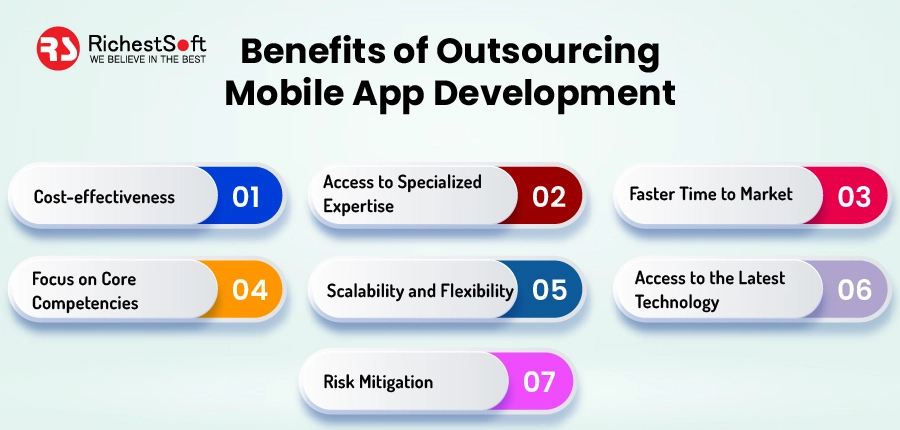Introduction
Link building is an integral part of Search Engine Optimization(SEO) that involves acquiring links from other websites that lead to your site. It is a complex and challenging process that has become increasingly important in the digital age. New Google algorithm updates keep coming as they constantly refine their algorithms to deliver more relevant search results. Link building is more than just getting other sites to link to your website but also about building relationships, establishing authority, and improving user experience, which is not easy. According to the SEO tribunal, around 65% of digital marketers believe link building is the most challenging part of SEO.
In this blog, we’ll take a deep dive into link building to make things easier for you, covering everything from basic concepts to advanced techniques. We’ll explore the importance of link building in SEO, how link building has evolved over the years, and the best practices for creating effective links that will boost your site’s ranking and visibility. This blog will provide the knowledge and tools you need to develop a successful link-building strategy to drive traffic to your site and improve your search engine ranking.
What Is Link Building?
Link building is obtaining backlinks from other websites to your own. Backlinks are crucial for SEO as search engines use them to determine a website’s relevance, authority, and popularity. In the past, link building was focused on quantity rather than quality, but search engines have become more sophisticated, and their algorithms can detect spam and low-quality links. As per uSERP stats, 85% of SEOs and marketers believe link building is significant in building brand authority.
Nowadays, link building emphasizes building high-quality, relevant, trustworthy, and authoritative links. Building high-quality backlinks takes effort and time, but improving a website’s search engine rankings is essential. Backlinks from trustworthy sources are more valuable than those from low-quality or spammy websites. Link relevancy and anchor text also play a vital role in modern SEO. Relevant backlinks and anchor text that accurately describes the linked page’s content are more valuable than those that are not relevant or generic.
You May Also Interested In:
- An Ultimate Guide To ECommerce Mobile Optimization
- Why Should You Focus On Improving Average Order Value?
- 2023 Paid Advertising Stats: Revise Your Campaigns Strategy
- ChatGPT: What Are Its Potential Impacts On SEO?
- Content Marketing Trends To keep An Eye On
- Digital Advertising: Know The Best Ads Platform
Link Building Strategies in 2023
A great way to start with your link-building strategies is by taking an overview of new techniques. Google keeps updating its algorithm to improve the performance of SERPs. They keep on updating their strategies and policies. As they make changes or bring out new updates, they put out statements. This indicates that relying on old link-building strategies isn’t work; you also need to make necessary upgrades in your plan and include modern techniques. Below are some of the link-building strategies for 2023.
Importance of Creating High-Quality Content
Content is king, and hence utmost focus should be paid to writing quality content. Providing value to your audience through your content is important to develop trust. Hence emphasizing providing value can help increase your trust among people. Once you can develop trust among people, you can build your authority in your niche and collect backlinks. Creating high-quality shareable content that provides value increases the chances of getting backlinks and increasing websites authorities. You can also check our recent blog on Content Marketing Trends to learn in-depth information.
Guest Posting and Outreach
Guest Posting involves writing and publishing an article on someone else’s website, including a link to your site. Outreach consists of contacting relevant websites and requesting they include a link to your site in their content. The outreach and guest post link building helps build relationships with other website owners and increase the quality of backlinks to your site. You need to outreach to bloggers via E-mail or their social media handles with an outstanding pitch. Here is an example of guest posting outreach template, look at it:

Below are some of the tips for outreaching for guest blogging:
- Identify Potential Hosts: Reach out to a website related to your industry to ensure you get link-building benefits from the content created.
- Research The Hosts: Most of the time, they don’t get results because they don’t research properly to get the right host. Doing the right research will help you get the job done.
- Craft A Compelling Pitch: Finding the right fit will not be enough. You need to write a compelling pitch that convinces the host to share it with their audience. Provide a clear explanation of why your content would benefit their site’s readers to get their support.
- Provide Samples of Your Work: Give the host a sense of your style and demonstrate your expertise by sharing links to your previous writing.
- Follow Up: Do not hesitate to send a polite email or message if a host does not reply to your initial contact but also make sure you are not being too pushy.
Building Links Through Social Media
Social Media is another great technique to include in your link-building strategy. Through social media marketing, link-building is primarily about getting links through people within social networks. People following you on your social media platforms can easily share your content when they find it valuable and want to share it with their audiences. Consider following tips for building links through social media.
- Share Valuable Content: If you want to build links through social media, you must share content that people will engage with, such as blog posts, infographics, videos, and other kinds of content that align with your brand.
- Engage With Your Followers: Keep track of the comments and messages from your followers so you can build relationships and encourage others to share your content.
- Reach Out To Influencers: Build relationships with influencers in your industry and enlist their help sharing your content, as influencer marketing is becoming increasingly popular.
- Participate in Online Communities: Join online communities and groups relevant to your niche and contribute by participating in discussions and sharing relevant content.
- Use Hashtags Strategically: Make sure you use hashtags relevant to your content and industry on social media so that potential followers and linking opportunities can be found through them.
Link Building Using Infographics
Infographics are great for presenting complex information in a visually appealing manner. They are highly shareable and can attract links from websites that want to use your infographic as a source of information. Following are some points that you need to consider while including infographics in your link-building strategy:
- Create High-Quality Infographics: First and foremost, create an infographic that’s visually appealing, informative, and relevant to your niche. It is important to keep a design simple and clear.
- Share Your Infographic: Post your infographic to your website, social media channels, and other industry-related websites to attract attention.
- Offer To Customize The Infographic: Offer to customize it with their branding or include a link to their website within the design to encourage other websites to link to your infographic, so it becomes more valuable and more likely that they will share it and link to it.
- Reach Out To Websites: Contact websites that would be a great fit for your infographic and explain why it would be worth their audience’s attention.
- Monitor Your Backlinks: Track the sites that link to your infographic, and thank them for sharing. It’s a great way to get to know people and get them to share more.
Niche Edits or Link Insertion
Niche edits are a powerful and effective link-building strategy that involves finding relevant content on other websites and requesting the website owner to add a link to your site within the content. By using niche edits, you can tap into the existing content on other websites that is already relevant to your niche and establish your website as an authority in your industry. This technique can be especially useful for obtaining high-quality backlinks that improve your website’s authority and visibility in search engine results pages.
Leveraging Broken Links Strategy
The content marketing technique can help you acquire quality backlinks from relevant websites. The broken link-building strategy involves finding broken links on other websites and suggesting your content as a replacement. Below are some of the effective tips that you need to follow:
- Use Advanced Search Operators: Look for broken links on websites related to your industry or niche using advanced search operators, which can be more efficient and save you time.
- Create High-Quality Content: Replacing broken links with relevant content can be a good idea, so emphasis should be made on creating high-quality content.
- Personalize Your Outreach: Identify the benefits of the content you have created over the broken link, describing their relevance to the website’s content.
- Follow Up: Always follow up with a polite reminder after the initial outreach while respecting the website owner’s time and resources.
- Monitor Your Backlinks: Monitor the quality of links that link back to your content using tools like Google Analytics and identify opportunities for further improving your blogger outreach link building and content.
Create Your Own Original Statistics
Creating and publishing your original statistics and data can attract links from other websites that want to use your information as a source for their content. The original statistics have not been used before. By publishing the same data, you can provide authoritative information to your audience and use high-quality backlinks from other websites. Don’t forget to make your data relevant and newsworthy and to promote your statistics online and through outreach. Below are ways in which creating original statistics can help in link building:
- Unique and Valuable Content: Unique and valuable statistics can provide other websites with content that others will link to. You can become a go-to source of information for other sites.
- Authority Building: Publishing original statistics can help you establish your authority in your field and make you more likely to be linked to other websites.
- News Coverage: You can also generate news coverage by publishing relevant and newsworthy statistics, which is a great way to collect link baits. Doing so may attract journalists and media outlets to write about your findings and link to your website.
- Outreach Opportunities: Identifying websites interested in your data can be a good way to reach out and offer exclusive access to the data or collaborate on a content piece.
Use Resource Links From Trusted Sites
Resource links are links to relevant content that provide value to the website’s audience. By acquiring resource links from trusted sites, you can increase your website’s authority and visibility in search engines.
- Check The Source: Ensure that the site you get the resource links from is reputable and trustworthy. Look for sites that are well-known in the field, have a good reputation, and are known for their accuracy and reliability.
- Check The Content: Read through the resource link carefully to ensure it is relevant to your needs and is up-to-date. Check for any biases or conflicts of interest that may be present in the content.
- Evaluate The Credibility: Consider the author’s or organization’s credibility behind the resource link. Are they link building experts? Have they published other reputable content on the topic? Do they have a track record of providing accurate and reliable information?
- Use the Links Wisely: Use the resource links to supplement your research and understanding of the topic rather than relying solely on them. Take the time to read through the information and draw your conclusions based on the evidence presented.
- Cite Your Sources: If you use information from the resource links in your work, be sure to cite your sources properly to give credit to the original authors and avoid plagiarism.
Check Competitors’ Backlinks
Checking your competitors’ backlinks can help you identify potential link-building opportunities for your website. By analyzing your competitor’s backlinks, you can determine which websites are linking to them and try to acquire similar links for your site. Fortunately, there are many tools available that can help you with this task. Semrush, Ahrefs, Ubersuggest, Moz, and Spyfu are popular tools that allow you to check your competitors’ backlinks.
These tools have several features, such as viewing your competitors’ most linked-to pages, understanding the types of websites linking to them, and tracking backlink changes. You can use these tools to gain valuable insights into your competitor’s link-building strategies and improve your site’s backlink profile. You can attract organic traffic to your website by checking your competitors’ backlinks. You opt to outsource link-building services if you have no experience with tools, as more than 60% of companies hire agencies and outsource link-building activities.
Replicate Your Competitor’s Best Links
Replicating your competitor’s best links is another powerful link-building strategy to help you gain an edge in your niche. The process involves identifying the backlinks that provide the most value to your competitors and acquiring similar links for your website. You can understand what content and tactics work well in your niche by analyzing your competitor’s link-building strategies.
This information can be invaluable for developing your link-building strategy and improving your website’s online presence. The key advantage of replicating your competitor’s best links is that it can help you identify and target high-quality backlinks that have already proven effective. This can save you time and effort in the long run and ensure that your link-building efforts focus on the most valuable opportunities.
The Impact of Artificial Intelligence on Link Building
AI has revolutionized SEO, including link building. In the past, link building was focused on obtaining many links through spammy techniques. However, AI’s introduction to search algorithms has made link quality more important than ever. With AI, search engines can analyze links and differentiate between spam and high-quality ones.
Link-building strategies now emphasize creating high-quality content and building relationships with other websites to acquire high-quality, relevant links. This approach improves search engine rankings and enhances the user experience. Machine learning algorithms can identify the relationships between web pages and analyze large data sets to determine link context and evaluate link quality’s impact on search engine rankings. Below are some ways AI is affecting link building.
- Personalization: Artificial intelligence algorithms can analyze website visitors’ data and behaviors to provide more relevant content and link recommendations.
- Automated Link Analysis: AI-enabled link analysis tools can identify valuable link opportunities and analyze link patterns, analyzing and analyzing link patterns.
- Natural Language Processing: Artificial intelligence-powered natural language processing (NLP) tools can identify natural and organic linking opportunities from content, including mentions and references.
- Identifying Fake or Low-Quality Links: Artificial intelligence-driven tools can be used to identify spammy techniques websites use to boost their rankings, avoiding search engine penalties.
Measuring the Effectiveness of Link Building
Measuring the effectiveness of link-building is a critical component of any SEO strategy. It helps you determine whether your efforts yield positive results and identify potential issues affecting your search engine rankings. As per Aira, 51% of marketers believe it takes one to three months to see results from link-building. The number and quality of backlinks are crucial link metrics used to measure the effectiveness of link building. The number of backlinks refers to links pointing back to your website. The quality of backlinks is determined by factors such as relevance, authority, and trustworthiness of the linking site.
Domain authority and page authority are important metrics that measure a website’s overall and specific page strengths, respectively. Tracking link-building progress is essential to determine whether your efforts yield positive results. Regularly monitoring your link profile can help identify potential issues, such as low-quality or spammy backlinks, and take corrective action. There are various link-building tools available that can help measure the effectiveness of your link-building efforts. These tools can provide insights into the quality and quantity of backlinks and monitor changes in link metrics over time.
Examples of some of the best link-building tools include Ahrefs, Moz, Majestic, SEMrush and more. By measuring the effectiveness of your link-building efforts, you can identify potential issues and make informed decisions to improve the quality and quantity of backlinks to your website. It is important to keep track of your link profile regularly and utilize link-building tools to gain insights into the strength of your backlink profile.
Final Thoughts
In conclusion, link building remains an important factor in improving the visibility and ranking of websites in search engine results pages. By acquiring high-quality links from reputable websites, you can establish authority and trust with search engines and users alike. The future of link building will likely continue evolving as search engines become increasingly sophisticated in their algorithms and users continue to demand high-quality, relevant content.
It is essential to stay up-to-date on the latest digital marketing trends and best practices in link building. As we look towards 2023, we recommend building relationships with other sites and creating high-quality, shareable, and valuable content for users. Finally, always prioritize quality over quantity when it comes to link building, and remember that building a strong online presence takes time and dedication. With these tips, you can develop an effective link-building strategy to improve your site’s visibility, ranking, and overall success.
The post Link Building: The Backbone of SEO in 2023 and Beyond appeared first on Huptech Web.
Source link






Leave a Reply